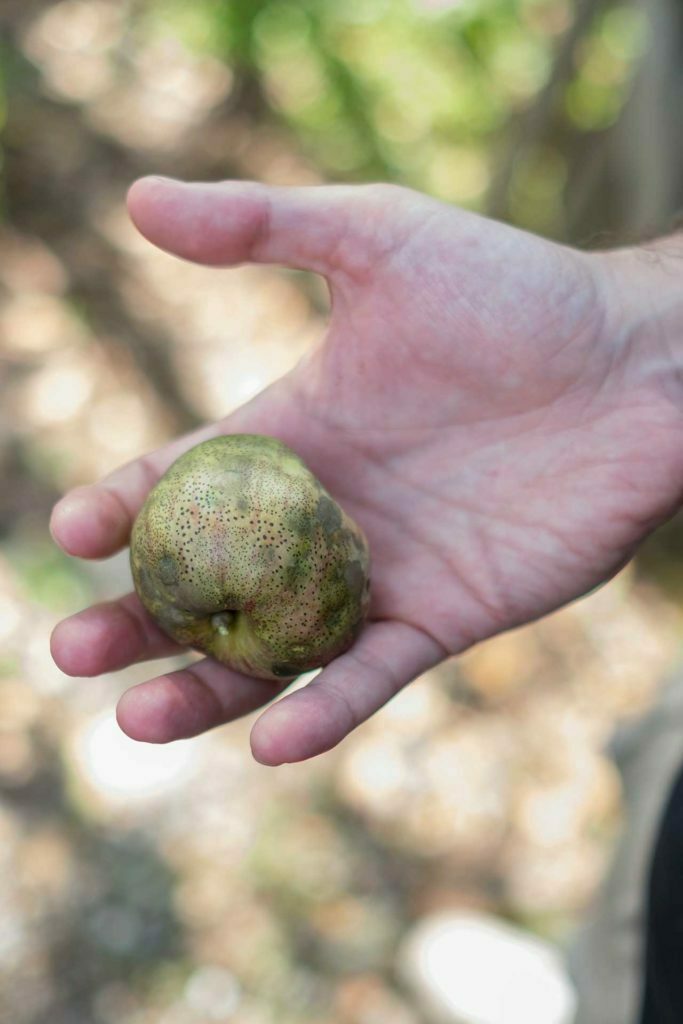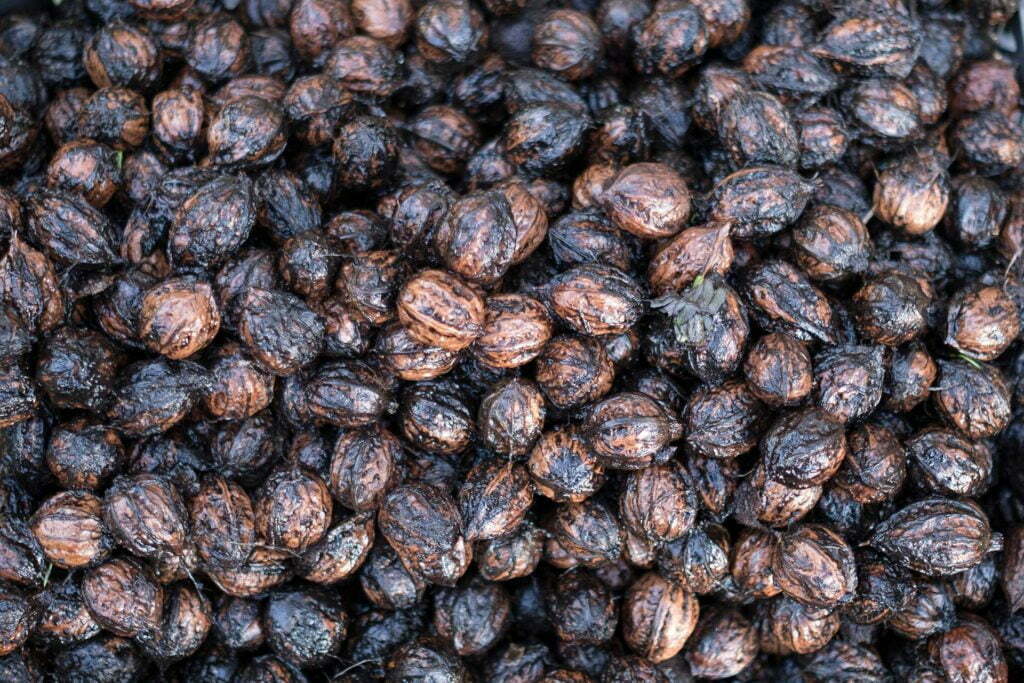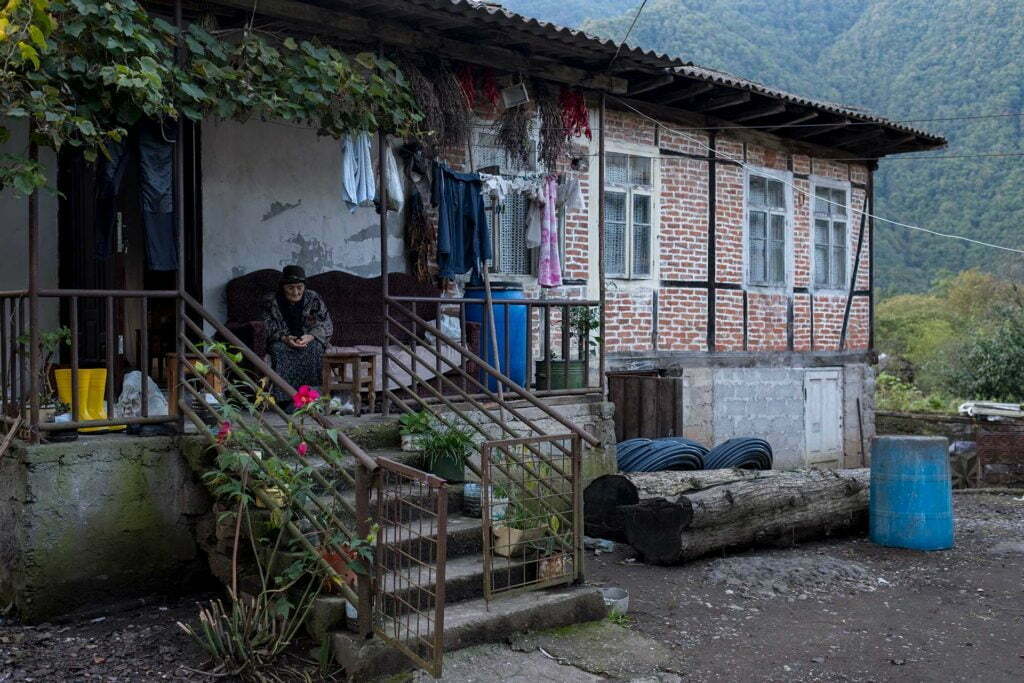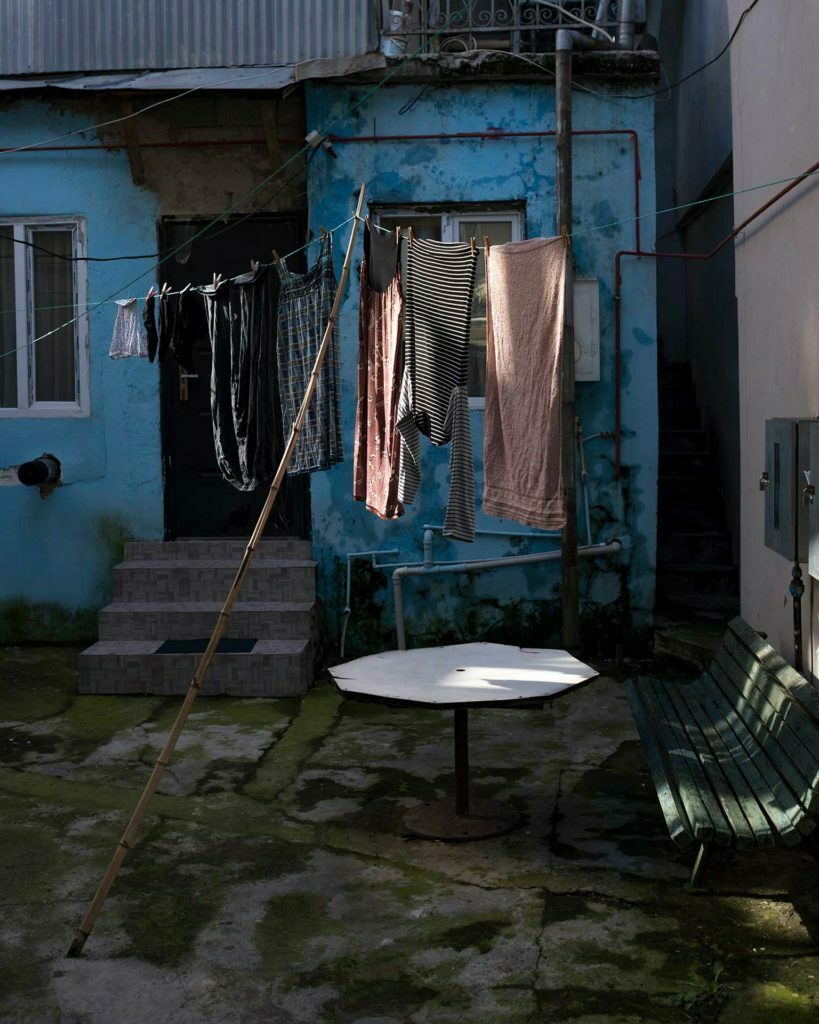DUYGU DAĞ
As we stand glancing around at the village center, two people in front of a small shed, which seems like both a grocery and a village coffeehouse, watch us with curious eyes. They try to figure out what business a busload of people has in this small village near the Turkish border of Georgia. We are in Maradidi on the last day of our field trip.
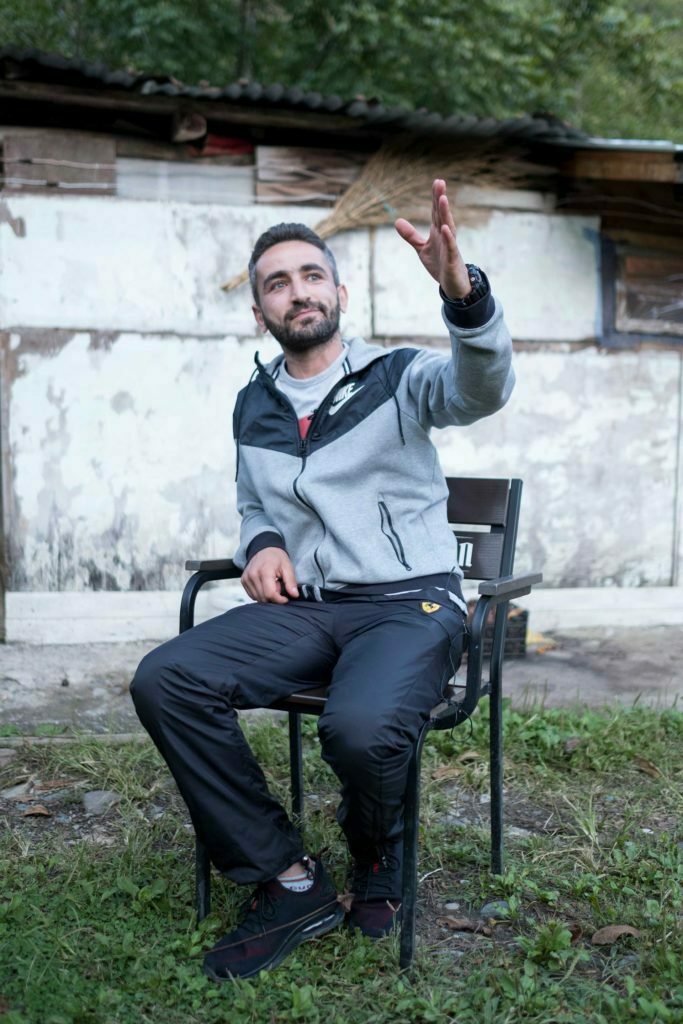
After a quick tour of the village, we start talking to one of the two people sitting in front of the coffeehouse at the village center. More precisely, she starts speaking to us in English. It is pleasing for us to have the language barrier removed in this tiny Georgian village with approximately 400 inhabitants. 34-year-old Miriam was born and raised in Maradidi. In our trip that began in Turkey, we are keen to learn the effects of dams here and what people who live on the Georgian side of the river Çoruh have to say about them.
When asked about the dams Miriam hesitates to speak. We are shaken by the parallels in dispossession practices caused by the dam projects and the similar unease felt by the people who are affected by them. Miriam tells us that once the construction of the Kırnati Dam located just down the village is completed and the dam starts to hold water, they will be displaced. She further speaks of how the company and officials are not paying any heed to the villagers, of the small sums they are offered in exchange for their houses and lands, of the court cases they lost, and of many people from the village who have either been incarcerated or criminalized because they resist.
Miriam is a sailor who has been to 37 countries. Although she prefers to live in the village, she also has a house in Batum. She tells us about the Batum coast where the river Çoruh meets the Black Sea on the Georgian side forming a wide delta. The shore has been dramatically affected by the dams built in Turkey:
Approximately 100 houses were destroyed by the sea as it moved inwards to the land. In the past, Çoruh used to amass on the shore stones and sediments which provided natural protection. Now, the state has to pile up stones there to protect the beach.
We listen to how, as is the case in the rest of the basin, vegetables and fruits rot away, new types of diseases and insects appear, the climate changes, and the livelihood has become more difficult to sustain.
I bring some walnuts from there and let’s crack them open. If we are lucky, you’ll see that only ten out of hundred will be edible.
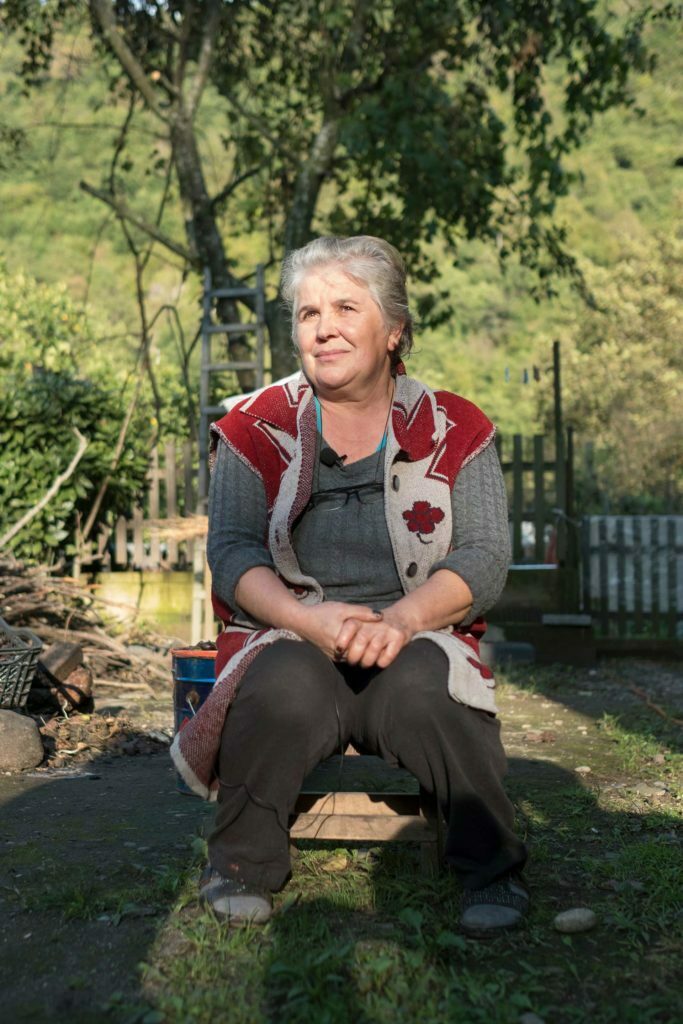
In 2018, the river Çoruh has completely dried out. “That said, the humidity has increased enormously, when you lie down in your house, you get wet as if dew has fallen on you,” she added. We are told that it no longer snows. Natella, another inhabitant of the village, also says that the climate has changed after the construction of the dam, humidity has increased, weather is a lot colder, fog in the mornings blocks all sight, and it is no longer possible to spend the winter in the village.
The dam that Natella talks about is called Muratlı, the first dam built on the river Çoruh by Turkey.
On the morning of the same day, we had asked three people sitting in front of the grocery store in Muratlı what had changed after the construction of the dam. They told us that the climate has changed, a new insect species that pester hazelnuts appeared, fruits began to rot at the branches of trees, and it became almost impossible to open one’s eyes due to humidity.
In the past, snow would reach six to seven meters; after the dam, there was no more snowfall.
The Muratlı Dam, which began to operate in 2005, and its namesake village Muratlı are in the walking distance from the Turkish-Georgian border. The bird’s eye distance between Maradidi and Muratlı is approximately two kilometers. These two settlements were divided with the referendum that took place in the early years of the Republic. Muratlı used to be called Maradit, which means a large pasture. This is an agricultural village in the Eastern Black Sea where large plains are not common to come across. With the border, Maradit and the families living in the village were separated. Whereas some of them live in Georgia in “Lower Maradit” (Maradidi), others live in Turkey in “Upper Maradit” (Muratlı).
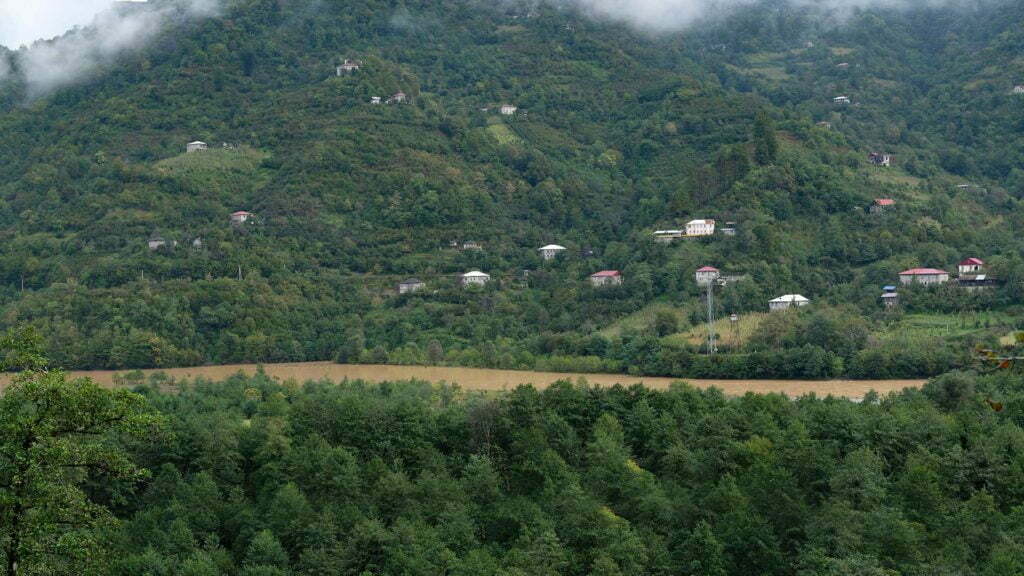
At the village coffeehouse (which is also the association lounge of the football club Muratlı Hudutspor), Zekeriya Öztürk, the mukhtar of the village between 1994-2004, starts talking. He says that everyone has relatives on the other side and that the opening of the border at Muratlı has been raised at every election term for 40 years now. Öztürk tells us that the only demand of the village inhabitants is the border to be opened. They believe that it would be a source of income for the districts and villages in the region.
Majority of those living in Muratlı are retired. Most of the young people have already migrated. After the construction of the dam, the village school was closed.
People are migrating from the village, there is nobody left here. And they still keep constructing dams. They are also building a dam in “Lower Maradit”, five kilometers away from here.
25 kilometers of the river Çoruh, which is in total 438 kilometers long, runs within the territories of Georgia. Two dam projects, both of which are undertaken by a Turkish firm, will be constructed on this short segment of the river. People talk about how land in Muratlı will be confiscated once the water held by the Kırnati Dam built just below Maradidi reaches Muratlı. Just as it is on the other side of the border, the future is uncertain.
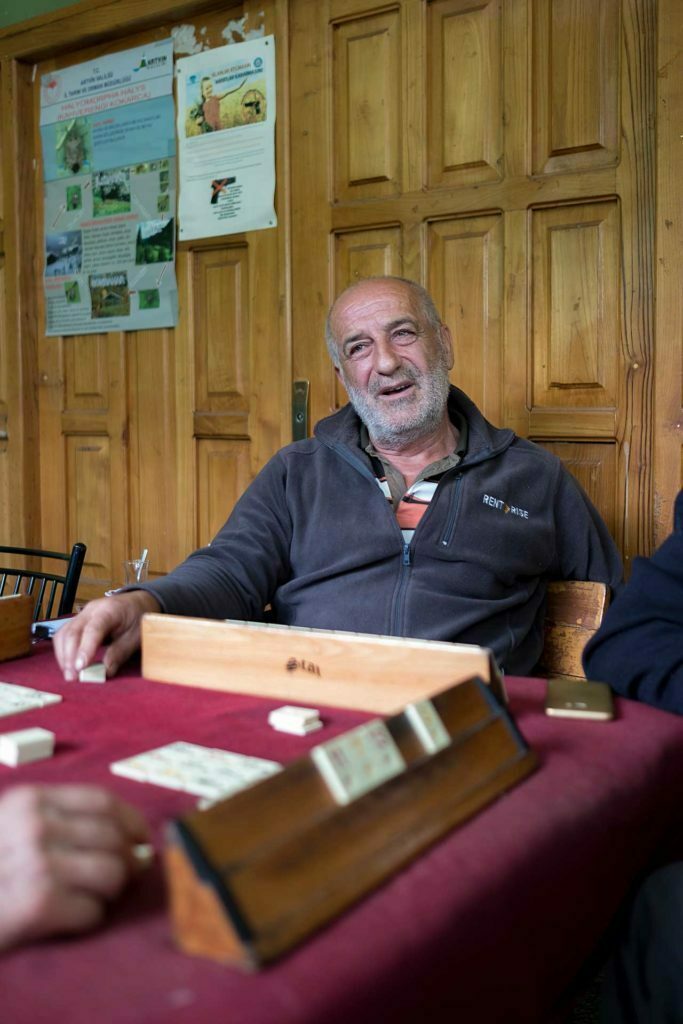
Zekeriya 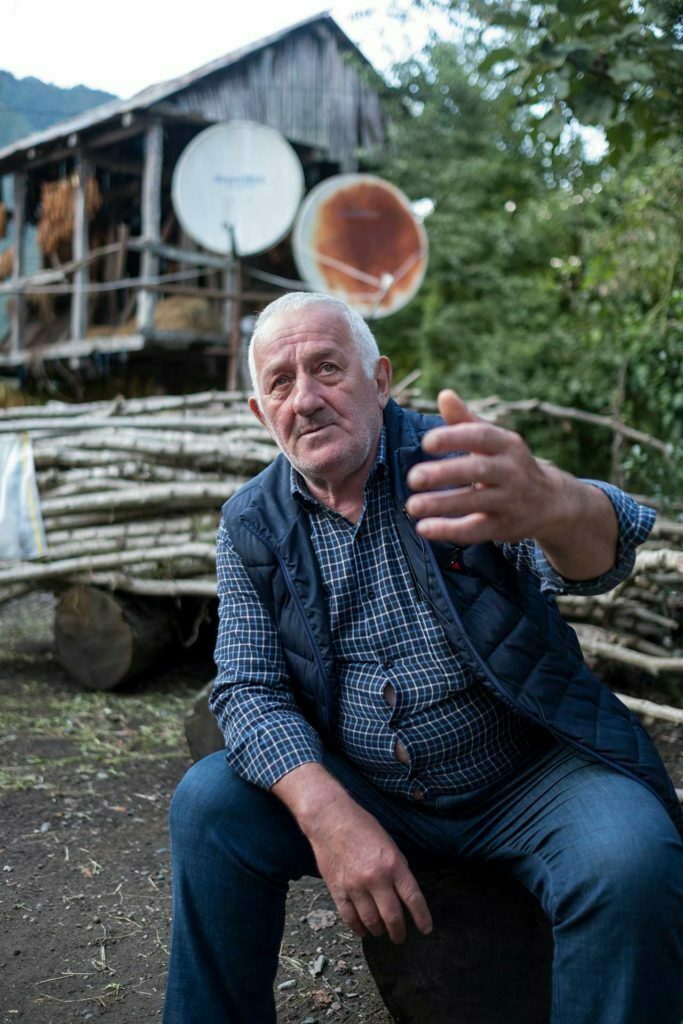
Sabri
The paternal relatives of Brother Sabri, with whom we met in Maradidi, are from the district of Borçka. He speaks broken Turkish. He hosts us as if he is taking care of his own relatives. He does not want the dam.
The cemeteries of our fathers and grandfathers are all in this land; what is going to happen to them once the water reaches here?
This is a concern which we hear at every stop on our trip through the Çoruh basin. In a similar vein, Miriam also tells us that their memories and cemeteries are all in this village and they do not want them to be flooded under the water.
Cemeteries are a big issue. They told us that they would transfer them to another location. Some cemeteries belong to Muslims, others to Christians. Everybody has their own rituals. How can we transfer them without holding the necessary ceremonies?
The common problems caused by the infrastructure projects are added to what these two settlements already share: history, geography, family ties, and culture. Today, they also share the uncertainty, untransparent processes, unease, and environmental changes caused by the dams. They are united in their demand of not wanting to lose the trees from which they eat fruits, the streams in which they swam with their friends, and their memories.
We got on the bus to leave Maradidi. Brother Sabri escorts us all the way to the bus. The last words that come out of his mouth before the bus door closes put a moving end to our 9-day trip: “No doubt, we will meet again!”
